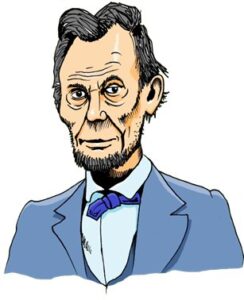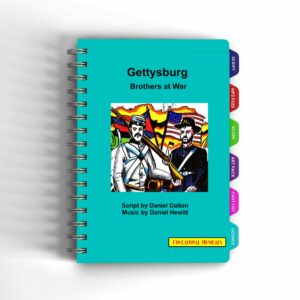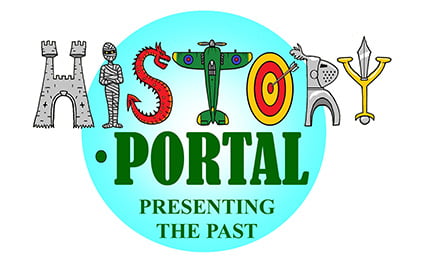 President Abraham Lincoln, the16th president of the United States of America was assassinated on April 14th 1865.
President Abraham Lincoln, the16th president of the United States of America was assassinated on April 14th 1865.
But why? What had this ‘man of the people’ done to deserve such a violent end?
Born in a log cabin in Kentucky on February 12th 1809 Abraham Lincoln was raised on the American frontier in Indiana. He was a successful lawyer, politician, and statesman who eventually rose to be the 16th president of the United States.
Crucially he was president during the American Civil War and in charge of the Union forces of the north. Pitted against the Confederacy in the south.
Lincoln was in executive control of the war and shaped the Union’s military strategy. He became commander-in-chief, exercising absolute authority. He imposed a blockade on Confederate ports, disbursed Confederate funds, and imprisoned thousands of suspected Confederate sympathizers.
Civil Wars are, by their nature divisive, many families were torn apart by the conflict, with brother fighting brother.
 The major difference between the north and the south was that the north wanted to abolish slavery. With many plantations and farms in the south relying on slave workforces, this diametric difference of opinion fed the conflict.
The major difference between the north and the south was that the north wanted to abolish slavery. With many plantations and farms in the south relying on slave workforces, this diametric difference of opinion fed the conflict.
The war was long and bloody, lasting from April 12th, 1861 to May 26th, 1865.
The war resulted in at least 1,030,000 casualties (3 percent of the population), including about 620,000 soldier deaths—two-thirds by disease—and 50,000 civilians!
John Wilkes Booth was a well-known actor and a Confederate spy, who after attending Lincoln’s last public address, on April 11, 1865, in which Lincoln stated his support for black suffrage, Booth, a member of the audience, vowed:
“That is the last speech he will make.”
A white supremacist and Confederate activist, Booth hatched a plot to assassinate the President.
He learned of the Lincolns’ intent to attend a play with General Ulysses S. Grant, an acclaimed Union General on the 14th of April 1865, just three days later. . Booth planned to assassinate Lincoln and Grant at Fords Theatre in Washington DC.
At the last minute, General Grant decided to go to New Jersey to visit his children, instead of attending the play!
Lincoln and his wife attended the play ‘Our American Cousin’ on the evening of April the 14th.
At 10:15pm in the evening, Booth entered the back of Lincoln’s theatre box, crept up from behind, and fired at the back of Lincoln’s head, mortally wounding him.
After remaining in a coma for eight hours, Lincoln died at 7:22am in the morning on April 15th.
Lincoln’s War Secretary Stanton saluted and said, “Now he belongs to the ages”.
Lincoln’s body was placed in a flag-wrapped coffin, which was loaded into a hearse and escorted to the White House by Union soldiers.
Booth, who had escaped from the theatre and had gone into hiding, however he was eventually tracked to a farm in Virginia. He was trapped in a barn and refused to surrender. He was mortally shot by Sergeant Boston Corbett and died on April 26th.
 We at HISTORY.PORTAL have a range of historical musical shows.
We at HISTORY.PORTAL have a range of historical musical shows.
One that is bassed in this era is GETTYSBURG is an amazing musical for children, all about the American Civil War. It has 12 catchy songs and tells the story of a war that ripped apart families and forged the incredible United States of America.
If you click on https://www.history-portal.com/product/gettysburg/ you can hear two songs read two pages of script before downloading the show. You could be rehearing it immediately.
Isn’t History fun?
10 questions to discuss:
- Beyond his stance on slavery, were there other specific policies or decisions of Lincoln that might have motivated Booth to assassinate him?
- How did the public react to Lincoln’s assassination? Did it have a significant impact on the post-war reconstruction efforts?
- What were the potential consequences of Booth’s plan to assassinate both Lincoln and Grant? How might it have altered the course of history?
- Did Booth have any accomplices in his assassination plot? If so, what were their roles and fates?
- Was there any evidence to suggest Booth received support or encouragement from other prominent figures within the Confederacy?
- To what extent did Booth’s personal views on race and politics reflect broader sentiments within the South at the time?
- Could Lincoln’s assassination have been prevented with better security measures? How did this event lead to changes in presidential security protocols?
- Beyond Booth’s death, were any other individuals held accountable for their involvement in the assassination plot?
- Has the historical interpretation of Lincoln’s assassination evolved over time? If so, what are some of the key changes in perspective?
- How does the legacy of Lincoln’s assassination continue to inform contemporary discussions about political violence and public figures?
These questions delve deeper into the context, motivations, and wider implications of this historical event, to encourage further research and thoughtful reflection.
For more on this click on:
https://fords.org/lincolns-assassination/
https://www.archives.gov/exhibits/eyewitness/html.php?section=13
https://ahec.armywarcollege.edu/exhibits/CivilWarImagery/edwards_Assassination.cfm
© Text & Artwork Anthony James

